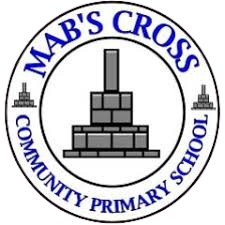Science
MAB’S CROSS PRIMARY SCHOOL
SCIENCE CURRICULUM
INTENT
At Mab's Cross, we aim for our students to become real scientists by stimulating their curiosity about the world around them. Children are natural investigators, so practical and experimental work is the key to unlocking this enthusiasm. We develop observation and reasoning skills to help their understanding and use mathematics in order to interpret results and draw conclusions from their investigations. This link between direct practical experiences and scientific ideas is crucial and engages learners at many levels. We want our children to be independent learners, show resilience and perseverance and have transferrable skills. With this in mind, science is taught with links to the other STEM subjects of maths, technology and engineering. In an ever-changing world, and in an area where technology, engineering and industry are strong, we want our children to be prepared and equipped for the 21st century and the world of work.
Our curriculum drivers of independent learning and aspiration thread throughout our science curriculum. We raise the profile of STEM through the use of STEM projects and the inclusion of STEM ambassadors in all year groups.
In EYFS and KS1, science is planned and delivered via a series of topics throughout the year. The emphasis is on exploring and observing to generate questions about materials, living things and physical phenomena. Children begin to work together to collect evidence, evaluate its meaning and question whether their tests are fair.
Science is also taught through topics in KS2, but the content is now deeper and of a wider range. Students work cooperatively in groups to solve problems and answer scientific questions. They develop their use of tables, charts and graphs to present their findings, and use ICT to communicate ideas.
All children will follow the same topics in science in-line with the class. However, we remove gaps and barriers to learning through the use of carefully sequenced lessons for children with SEND, looking back at previous steps in the learning journey, within the same topic. This is carefully sequenced in the progression documents we use.
IMPLEMENTATION
Teachers at Mab’s Cross have good subject knowledge. In particular, work has been completed on making links between the STEM subjects and ensuring planning reflects this across the school. A weekly science lesson is planned from Y1 –Y6. In EYFS we develop the children’s knowledge and understanding of the world through Maestro topics. In KS1 and KS2 we use ‘Love To Investigate’ units to ensure science work is practical in nature. This is carefully planned to link with the topics being studied in each year group of each year and to ensure there is a range of enquiry types being studied throughout the year. Further lessons on each topic have been planned by Maestro to support science investigations by ensuring background knowledge has been established and there is an opportunity for follow-up work where necessary. A STEM project is also planned for each year group, linked to a particular topic during the year, to provide connections to the other STEM subjects and raise aspirations through the use of STEM Ambassadors and visitors to school. We understand the need to establish a secure understanding of each block of knowledge to ensure genuine progression. At the start of each unit of work, knowledge organisers are provided. These are used to establish the children’s prior knowledge of a particular subject area, provide the key vocabulary for the topic and information on a key scientist. Where a topic is being revisited from a previous year group, we also list the previous topic vocabulary, to ensure that it can be revisited so that the children can build upon their previous knowledge. Throughout the teaching of the unit of work, knowledge organisers are available to reinforce the key teaching points. We also use end of the topic tests as part of our teacher assessment process. Science work is recorded in pupil STEM books and class floor books using agreed scientific headings including predictions / questions, practical work, results and conclusions / further questions. The evidence that is collected includes comments made by the children, photographs of practical work with observations made, a range of tables, diagrams, and graphs and a class or individual conclusion. At the end of a unit of work, teacher assessments are made based upon the observations of the science lessons and at the end of topic tests and assessment documentation is completed. In EYFS, all science work is recorded in a topic floor book. Key assessment documents for science are passed to the next class teacher at the end of the year.
IMPACT
At Mab’s Cross, the careful planning and implementation of our science curriculum ensures that children are given the opportunity to commit their science knowledge to their long-term memory. Science work is challenging and builds on previous knowledge and understanding of the science curriculum. Class Floor books are regularly monitored to ensure consistency across classes and skills progression through topics. Assessment documents are readily available for scrutiny by the technology team. The monitoring of science also occurs using pupil voice discussions.
